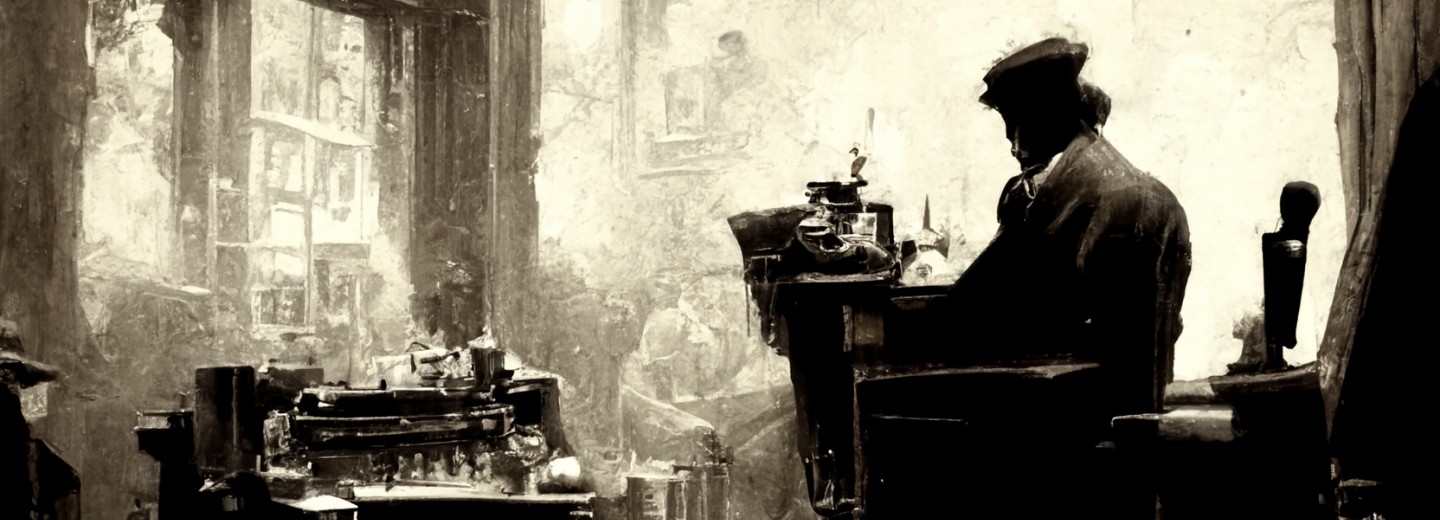Agony uncle
Wan Lik Hang occasionally receives letters asking for help. Sometimes it’s just money for some ‘incredible’ service or product. Sometimes it is a donation to one of the charities that his friends support. Very occasionally, he receives a poignant message such as arrived recently.
Dear Wan Lik Hang,
Yours desperately, Cyril
I am desperate for your advice. I feel I am being discriminated against in terrible ways for so many reasons. And I want to know what I can do about it. I read so much about human rights. Why can’t I have any?
I am left-handed. Society views me as old. I can’t get a mortgage or health insurance. I am a pacifist. My second marriage has ended in divorce. I’ve had to change my shopping from Waitrose to Tesco, for goodness sake. My mental health is suffering. I feel as if I am in a minority of one and nobody cares.
I see all these people protesting on the streets, waving placards, gluing themselves to roads and pictures. What have they got to complain about? What about me, I ask? Nobody seems to care.

The reply
I’m sorry to read of your unhappiness, Cyril. There’s not much I can do about your marriage, I am afraid, except to say that maybe you realised it was not working out. Divorce may be better in the long run.
We all suffer from too many disruptive protests and from rising living costs. I have no cure for either.
Your two other concerns, being left-handed and becoming older, however, are topics about which you may choose to think differently.
Left-handed
Most of the world today no longer regards left-handedness as a deformity (though there are cultures that still do). When you and I were growing up, being left-handed was a serious problem – a deviation more severe even than being a homosexual (which was illegal in those days). You were the devil’s tool.
Even today the Merriam Webster thesaurus is still scathing about left-handedness. “Clumsy”, “awkward”, “butterfingered”, are just a few of the characteristics the thesaurus believes left-handed people display. “I'd rather have no help at all than have his left-handed "assistance", the page gleefully uses as an example.
You were probably forced to change from writing left-handed to using your right hand. You cannot play sports that used shaped objects (like golf clubs) that depended on being used by right-handed people. You cannot shoot a gun because the action is wrong – or you cannot close your left eye. Your new guitar needed restringing. You wear a watch on your right wrist, so winding it is almost impossible without taking it off. And restaurants, well, they always lay out cutlery right-handed, so you have to switch knife and fork around before you eat.
It's embarrassing! And sometimes you cannot do something you really would like to because you are left-handed.

But let me turn this around for you – being left-handed is a wonderful gift that is available to less than 10% of the population. How special is that? I am guessing you can use most tools with either hand for example. In tight corners, what a blessing to be able to switch the screwdriver or hammer into the other hand accurately and effortlessly!
Your language skills are probably better than right-handers. You are less likely to suffer from the effects of Parkinson’s disease. Research shows that you are more likely to be creative. There is evidence that you may well use both the left and right half of your brain more effectively than right-handed people.
We share our left-handedness with many famous people including Albert Einstein, Julius Caesar, Napoleon Bonaparte, Leonardo da Vinci, Winston Churchill, and Barak Obama. (To be fair, Billy the Kid, Osama bin Laden, and Jack the Ripper were also left-handed!)
We are far better off than left-handers used to be. Joan of Arc was burned at the stake on May 30th, 1431, for being a witch. One of the ‘proofs’ of her guilt was that she was left-handed!
Aging
I have written on aging several times in this blog. In this post, I wrote about several books that show how people can reduce the effects of aging. In January this year I wrote about how we can think ourselves younger in this article.
Here I question some of the concepts behind our definition of age. Biological age is a clearer indication of your real age than simply the year in which you were born. But I refer you first to my blog in January 2020.

Society conditions us to believe that at certain ages we can expect to behave in particular ways. If we do not behave in those ways, we are somehow weird or abnormal. Children who excel at sport, music, or art are ‘prodigies’. Teenagers are invariably ‘rebellious’. Some people experience ‘mid-life crises’. And, when we get beyond 60, we are ‘pensioners’ or ‘grannies’. This entitles insurance companies, the media, and thus society, to treat us in a way that is ‘normal’ for that age group.
Like race, gender, disability, and several other conditions, how society labels us determines how society treats us.
The labels are convenient, lazy, stereotypes. But finger-print security, face recognition, eyeball scanning, work because every single person in the world is different. And again, in an average of 50%, there will be someone on 1 and someone else on 100. How much further apart can you get?
Whatever our age or generation, we should not accept these stereotypes for ourselves – unless of course we are happy to do so. Being older (however you choose to define it) can be a wonderful experience. You have years of experience on which to draw. There are new things to learn every day. If you eat well and keep even moderately fit, you have a quality of life that younger people envy. You can do anything you want to do if you choose to do it.
Many people ask how to retain fitness and energy. It happens in the mind. Keeping your body fit and working well is ‘easy’.
It is your mind that makes the difference.
Worked on the article:

Wanlikhang






